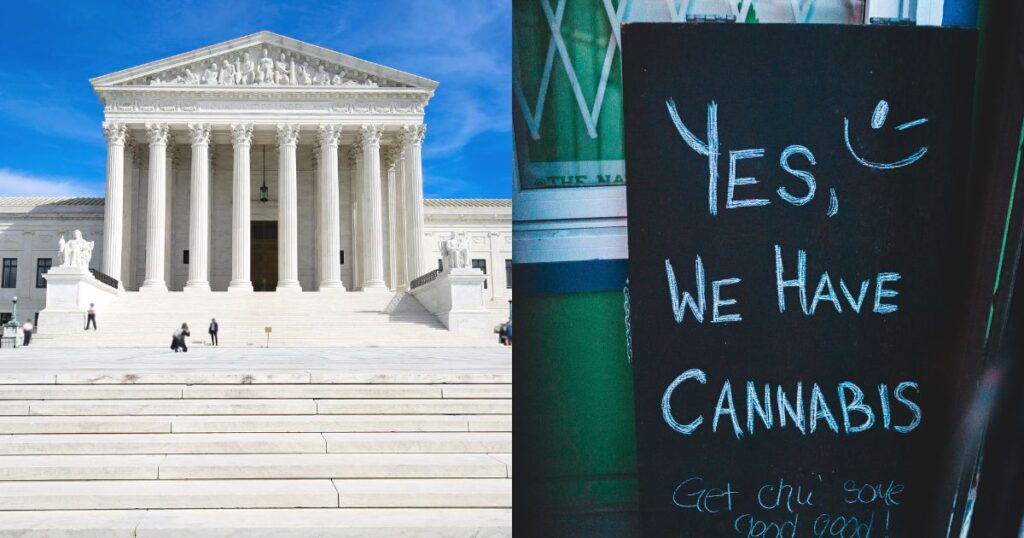Despite making progress toward legalization, cannabis remains caught in the crosshairs of conflicting legal definitions between state and federal law. This was shown recently when the U.S. Supreme Court declined to hear a case challenging Mississippi’s ban on cannabis advertising. The decision left intact a Mississippi policy that restricts all medical marijuana advertising in any medium, creating significant challenges for dispensary owners. This policy’s enforcement continues to deny marijuana businesses the same First Amendment rights enjoyed by other legal industries.
This situation is symbolic of a larger disconnect at the federal level. Marijuana is classified as a Schedule I drug under the Controlled Substances Act, which deems it a substance with “no accepted medical use” and a high potential for abuse. Meanwhile, nearly half of U.S. states have legalized recreational cannabis, and most have accepted its medical use. This inconsistency leaves the marijuana industry in a legal limbo, limiting the growth of what has become one of the fastest-growing markets around the world.
Marijuana Advertising Restrictions in Mississippi
The Mississippi Department of Health has implemented one of the strictest cannabis advertising bans in the nation. Under current regulations, dispensaries are prohibited from advertising their services through billboards, television, social media, newspapers, and even direct emails. A handful of narrow exceptions exist, but the blanket regulation essentially silences cannabis businesses.
This policy has a significant effect on dispensaries, including Tru Source Medical Cannabis, owned and operated by Clarence Cocroft II in Olive Branch, Mississippi, which is located in an industrial park with minimal foot traffic. Cocroft’s case against Mississippi was the one denied a hearing by the Supreme Court, reported by the Institute of Justice. Without the ability to advertise, dispensaries struggle to attract customers and educate the public about their products. This hampers their ability to operate as viable businesses within an already tightly regulated ecosystem.
The state justifies the ban by citing cannabis’s illegality under federal law. Courts have upheld this argument, with a three-judge panel from the Fifth U.S. Circuit Court of Appeals saying that the federal Controlled Substances Act overrides state laws on commercial cannabis speech. The ruling throws into sharp relief the unstable position of marijuana businesses, which are expected to operate legally under state laws but face severe limitations because of federal ones.
Implications of Suppressed Speech For Legal Cannabis Businesses
The First Amendment guarantees the right to free speech, including commercial speech, which allows businesses to advertise their products and services. However, when it comes to cannabis, this right is treated as conditional based on its federal classification. Though most states with medical or recreational marijuana markets permit some level of advertising, restrictions vary widely and often include prohibitions on targeting minors and making unsubstantiated medical claims.
Mississippi’s policy, however, goes far beyond these basic precautions, amounting to an outright gag order on cannabis businesses. The Institute for Justice, a libertarian public-interest law firm representing Cocroft, stated, “The First Amendment protects the right of people to speak truthfully about their legal businesses.” By extension, policies like Mississippi’s create legal markets where dispensaries can sell cannabis but cannot advertise it.
This restriction is not just detrimental to business owners but also negatively impacts consumers. Cannabis patients and casual users rely on advertising for information about where to find safe, state-licensed dispensaries, product availability, and pricing. When states suppress this type of communication, they indirectly encourage consumers to turn to the illicit market, which operates without any oversight.
Federal Policy and Industry Challenges
The root of these advertising restrictions lies in marijuana’s federal status as a Schedule I drug, a classification that equates cannabis with substances like heroin. This designation ignores the documented medical benefits of cannabis, including its use in managing chronic pain, reducing inflammation, alleviating symptoms of PTSD, and fighting nausea from chemotherapy. The disconnect between federal drug policy and scientific evidence creates illogical policies, such as prohibiting dispensaries from advertising products legally sold within state borders.
The Biden administration has made moves to reclassify cannabis as a less dangerous drug under federal law, but progress has stalled, leaving the industry in a familiar state of uncertainty. Even if marijuana is reclassified and not removed from the CSA altogether, it would remain a federally controlled substance, limiting its potential recognition as a legitimate medical treatment across the United States.
These continuing restrictions place marijuana businesses in what has been aptly called “First Amendment limbo.” While the industry has made incredible strides in destigmatizing cannabis use and advocating for legalization, federal reluctance has continually forced operators to contend with punitive measures in marketing, banking, and taxation.
Disparities and Social Equity
Advertising bans also deepen already known problems within the cannabis industry. Cocroft’s dispensary, Tru Source Medical Cannabis, is a Black-owned business that has faced disproportionate challenges in gaining access to the market. Without the ability to advertise, small, minority-owned businesses struggle to compete with larger, MSO operators that can rely on pre-established networks and word of mouth. Such policies create barriers to entry in an industry often promoted as an opportunity for marginalized communities to build wealth.
For cannabis to become a truly thriving industry, federal and state governments must reconcile these mixed messages. This includes not only addressing advertising rights but also legalizing marijuana at a federal level, reforming taxation policies, and adding banking solutions that provide equal opportunities for all operators.
Where Do We Go from Here?
The Supreme Court’s refusal to hear Cocroft’s appeal highlights the need for change. Restrictive advertising laws rooted in lackluster federal policies hinder the industry’s growth, innovation, and access. Legal marijuana businesses are not asking for special treatment but for the same rights afforded to any other legal enterprise.
The growing acceptance of cannabis use among Americans, coupled with its federal reclassification, could provide the momentum needed to challenge these policies. Until then, dispensary owners will continue to operate under a confusing set of rules that limit their success.
There are clear steps forward for ending the legal and regulatory predicament. Federal legalization, reclassification, and legislation like the SAFE Banking Act could provide a stable foundation for the industry. Until that happens, the marijuana community must continue advocating for fair treatment and equity.
Cannabis has moved beyond being a taboo subject on the fringes of society. It’s an industry with the potential to create jobs, boost state economies, and improve public health. Silencing the voices of those driving this progress isn’t just a disservice to business owners like Clarence Cocroft; it’s a disservice to consumers and communities nationwide.
















